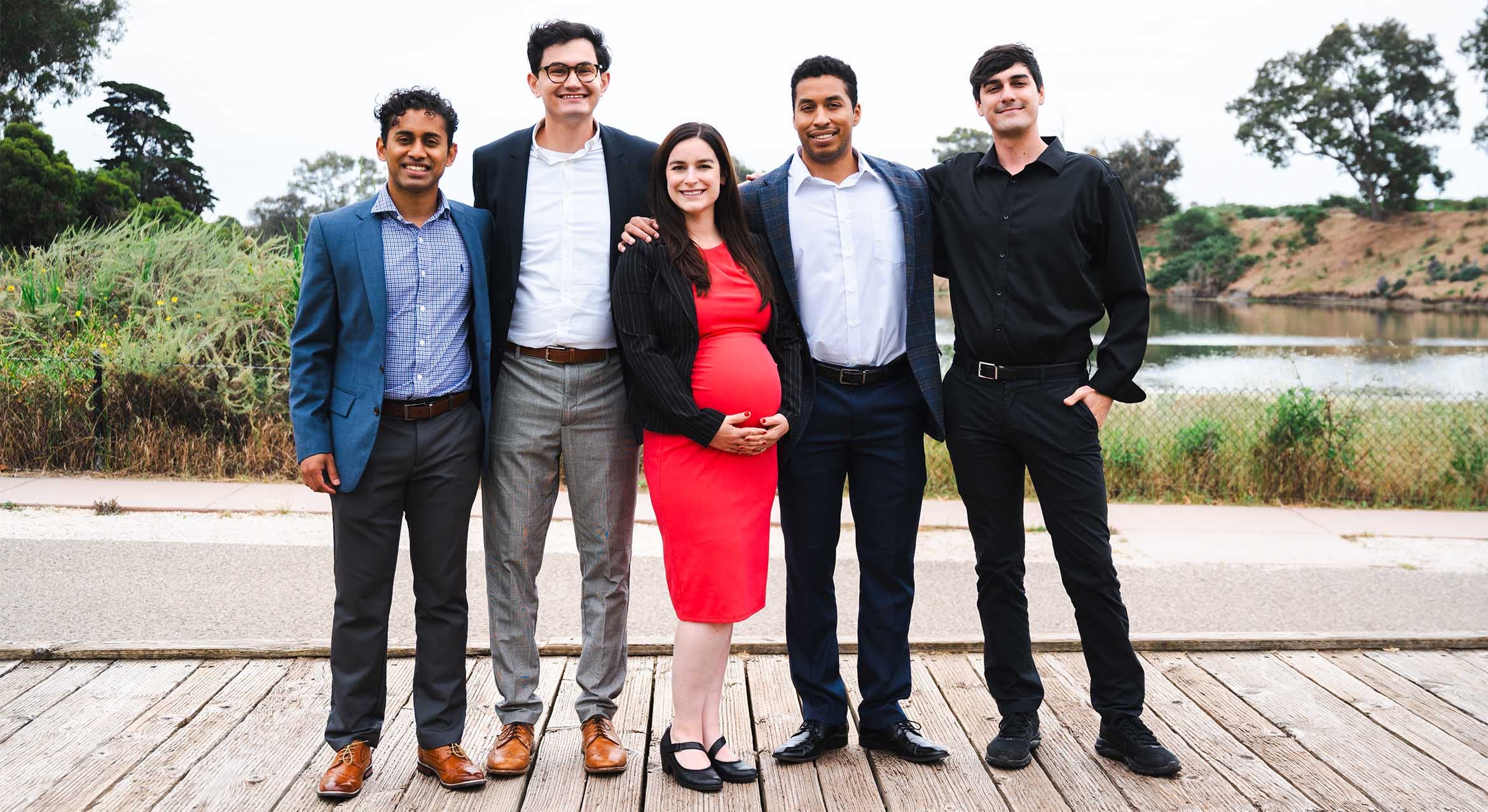
Novel Center for the Study of the Mind Established at UC Santa Barbara by SAGE Publications to Commemorate its 40th Anniversary
UC Santa Barbara has received a $3.5-million contribution from SAGE Publications to launch a dynamic new interdisciplinary research center for the study of the mind.
SAGE made the gift to commemorate its 40th anniversary as a leading international publisher for scholarly, educational, and professional markets.
The SAGE Center for the Study of the Mind will bring together UC Santa Barbara scholars from a broad range of academic disciplines in the arts and humanities, social sciences, the sciences, and engineering to explore the multidimensional nature of the human mind.
UCSB has attracted a top scholar to lead the pioneering new effort.
Michael Gazzaniga, widely regarded as the founder of the cognitive neuroscience field, will direct the SAGE Center.
Gazzaniga is currently the David T. McLaughlin Distinguished Professor of Psychology and Brain Sciences at Dartmouth where he directs the college's Center for Cognitive Neuroscience. In January, he will join UCSB's Psychology Department, where he began his academic career in 1967 as an assistant professor of psychology.
The author of several popular books, including "The Ethical Brain," and "Mind Matters," Gazzaniga was recently elected a member of the Institute of Medicine of the National Academies.
He has been a distinguished visiting professor at UCSB for the past three years, spending a part of each year in Santa Barbara.
"This is a fantastic opportunity to return to the place where I started my career and to build the mind sciences into a wide-ranging program that is inclusive of the social sciences and the arts and humanities," said Gazzaniga.
"It is an opportunity to pull together those people on campus who are interested in interdisciplinary work, which is rare at other universities.
My hope is to build a powerful new center focused on the unique nature of the human mind and how it works."
The SAGE Center will support and facilitate interdisciplinary research that has the potential to revolutionize our understanding of how the mind works and how it affects what we do. It will be one of the first facilities at a major university where researchers will collaborate across disciplines to explore human mental processes from a variety of perspectives: analytical, cultural, historical, philosophical, mathematical, scientific, and social. The new center will expand the study of the mind beyond the traditional mind-science disciplines of biology, chemistry, psychology, medicine, and neuroscience to create new opportunities for exploration and discovery.
SAGE's gift will also establish a distinguished visiting scholar program that will bring the foremost researchers to UCSB to study the brain and the mind and participate in seminars and conferences.
One possible topic for discussion, among literally thousands, for example, might be pain, which could be looked at neuro-biologically, psychologically, culturally, or from a literary point of view, Gazzaniga explained.
"By examining every aspect of pain from different angles, you gain greater insight from what it is and really does to us as humans," said Gazzaniga.
"This approach can be applied to anything you can think of."
UCSB Chancellor Henry T. Yang thanked SAGE Publications for its "vision and generosity in supporting this pioneering interdisciplinary research center.
The SAGE Center for the Study of the Mind will serve as a catalyst to bring together faculty, researchers, and students from a wide spectrum of related areas, resulting in exciting and innovative research alliances that will help revolutionize our understanding of the brain and mind, and ultimately of ourselves as humans."
James Blascovich, chair of UCSB's Psychology Department, said, "Michael Gazzaniga has played a seminal role in the development of human neuroscience, particularly the emergence of cognitive neuroscience.
This important and generous gift from SAGE Publications will enable UCSB to implement Professor Gazzaniga's vision of multidisciplinary study of the mind that will integrate scholarly pursuits across the academic spectrum."
Throughout its 40-year history, SAGE Publications has been committed to groundbreaking scholarship and interdisciplinary studies and the global dissemination of teaching and research, a commitment shared by UCSB and embodied in SAGE's recent gift to the campus.
"This is an exciting opportunity to take the study of the mind to a different and new level, to push the boundaries of the field and to drive it forward," said Alison Mudditt, executive vice president of the Higher Education Group at SAGE.
"SAGE has always focused on interdisciplinary endeavors, and believes the center will stimulate broad thinking about the nature of the mind not only in the biological and neurosciences but also in the social sciences and humanities, and in particular how these research breakthroughs might be applied much more readily to public policy."
Over the years, SAGE has played an important role in fostering scholarship by providing early publication outlets for academic research when disciplines are still being defined.
Mudditt said that SAGE established the unique center at UCSB as "a visible contribution to supporting basic research and furthering important fields of study.
SAGE's success over the past 40 years would not have been possible without the support and commitment of our authors and editors, and we wanted to mark this milestone anniversary by creating an ongoing partnership with the academic community."
Martin Moskovits, UCSB dean of mathematical, life and physical sciences, said, "The study of the human mind is the ultimate intellectual frontier.
Of necessity it draws upon the full spectrum of the scholarly accomplishments of the human species.
No corner of the university's territory can be reasonably excluded in considering the mind. And the inherently self-referential nature of the enterprise forces its domain to extend to the outermost borders of cognition and thought."
On Nov. 10, UCSB and SAGE will launch the new center with a special public event and panel discussion on the "Multidimensional Aspects of Mind: The Interdisciplinary Approach" in Corwin Pavilion beginning at 3:30 p.m.
Michael Gazzaniga will moderate the discussion involving three distinguished interdisciplinary scholars who study the mind from different perspectives.
They are Mahzarin R. Banaji, Richard Clarke Cabot Professor of Social Ethics in the Department of Psychology at Harvard University and the Carol K. Pforzheimer Professor at the Radcliffe Institute for Advanced Study; Patricia S. Churchland, a philosopher of the mind and of neuroscience from UC San Diego; and Marcus Raichle, a world-renowned brain-imaging scientist and professor of radiology, neurology, neurobiology, and psychology at Washington University in St. Louis.
About Michael Gazzaniga, Director of the SAGE Center for the Study of the Mind
Michael Gazzaniga received a Ph.D in psychobiology from the California Institute of Technology, where he worked under the guidance of Nobel Prize winner Roger Sperry, with primary responsibility for initiating human split-brain research. Gazzaniga subsequently made remarkable advances in our understanding of functional lateralization in the brain and how the cerebral hemispheres communicate with one another.
Gazzaniga has published many books accessible to a lay audience, such as the recently published "The Ethical Brain," "Mind Matters" and "Nature's Mind," which, along with his participation in the public television specials "The Brain and The Mind," have been instrumental in making information about brain function generally accessible--essential in obtaining public support for clinical and basic science research.
His many scholarly publications include the landmark 1995 book for MIT Press, "The Cognitive Neurosciences," now in its third edition, which is recognized as the sourcebook for the field. Gazzaniga's long and distinguished teaching and mentoring career has included beginning and developing centers for cognitive neuroscience at UC Davis and at Dartmouth, supervising the work and encouraging the careers of many young scientists, and founding the Neuroscience Institute and the Journal of Cognitive Neuroscience, of which he is the editor-in-chief.
Gazzaniga is a fellow of the American Association for the Advancement of Science, the American Neurological Association, the American Psychological Association, the American Academy of Arts and Sciences, and most recently, the Institute of Medicine.
He is also president of the American Psychological Society. He is a much sought-after advisor to various institutes involved in brain research, and is a member of the President's Council on Bioethics.
His teaching and research career has included appointments at UC Davis, Dartmouth College and Medical School, Cornell University Medical College, the State University of New York at Stony Brook, New York University Graduate School, and UC Santa Barbara.
Visit www.psych.ucsb.edu/people/faculty/gazzaniga/index.php for more information.
About the SAGE Center for the Study of the Mind
It is hard to conceive of a topic that is broader and of more personal interest than the study of the mind.
Whether the area of focus is history, literature, philosophy, economics, anthropology, linguistics, computer science, molecular biology, mathematics, physics, chemistry, or the traditional mind-science disciplines of psychology, neuroscience, or medicine, there is an underlying fascination with how the mind works and how it affects what we do.
Researchers throughout this range of disciplines are, in fact, pursuing answers to similar questions.
UCSB's SAGE Center for the Study of the Mind will serve as a catalyst for the interdisciplinary study of the brain and the mind. Some of the most exciting areas in cognitive neuroscience, for example, lie at the boundaries of neuroscience and psychology, powered by new advanced analytical technologies and tools in physics, chemistry, molecular biology and genetics, engineering and mathematics.
The center will integrate a wide range of scholarly endeavors and technologies in the humanities, social sciences, and the sciences.
These will include, for example, metaphysics and the philosophy of mind; methodologies in the social and behavioral sciences; and the relatively recently developed tools in the sciences such as functional neuro-imaging, genetic techniques, computational modeling, and immersive virtual environment technology.
In addition, the SAGE Center is committed to developing innovative ways to communicate questions and discoveries, and to stimulating discussion among the disciplines to advance our understanding of the relationship of the brain and the mind. The work at the SAGE Center should offer far-reaching explanations of human phenomena, such as social interactions, stress, conflict resolution, decision making, consumer economics, criminality, and much more.
The SAGE Center will be located in the new wing of the UCSB Psychology Building, which will also house two related research centers, a new Brain-Imaging Center and the Research Center for Virtual Environments and Behavior, which was established in 1997.
About SAGE Publications
Forty years ago, a new social science publisher named SAGE Publications launched an innovative journal called Urban Affairs Quarterly. Today, SAGE continues to publish Urban Affairs Quarterly (now Urban Affairs Review) along with 400 other journals and over 350 book titles a year.
SAGE is now one of the world's leading commercial academic publishers.
Its growth has been propelled by its abiding passion to play a creative role in society as a global champion of teaching and research.
SAGE occupies an essential niche between the big conglomerates and university presses and has become the natural home of thousands of book authors and the more than 400 editors and scholarly societies that entrust SAGE with publishing their journals. Over the years, SAGE has played a central role in the development of several key areas of study, including communication, evaluation and research methods. Its books and journals are cutting edge, thought provoking, and critical and contain forward-looking material that has global reach.
New technologies not even dreamed of four decades ago enable SAGE to deliver its journals electronically through the award-winning SAGE Full-Text Collections and SAGE Journals Online.
As SAGE enters its fifth decade, it has maintained its vision and embraced dynamic new technologies that place it at the forefront of academic publishing. It is well positioned to continue to publish the very best scholarship and make it available to the widest audience. SAGE Publications is a global publisher with headquarters in Newbury Park, California.
Sara Miller McCune is publisher and chairman of Sage Publications.
At UCSB, she serves as a trustee of The UCSB Foundation, and has been a generous benefactor of the campus.
Visit www.sagepublications.com for more information.



